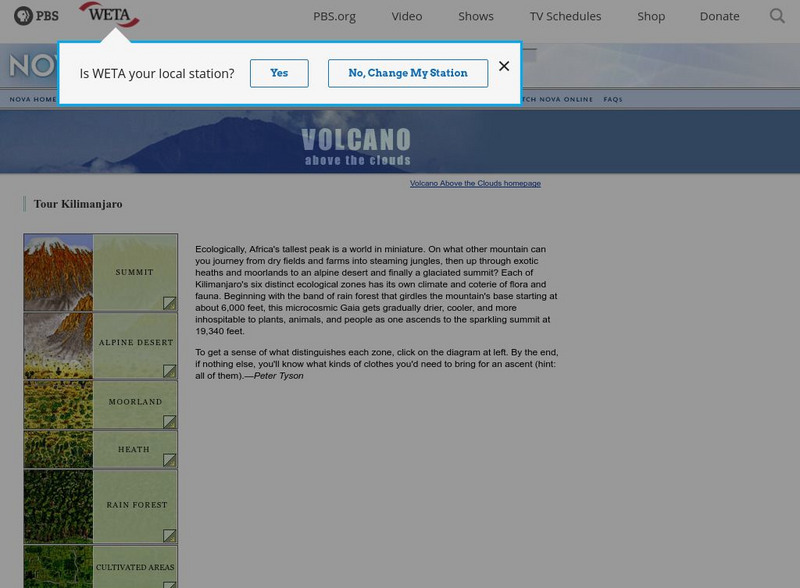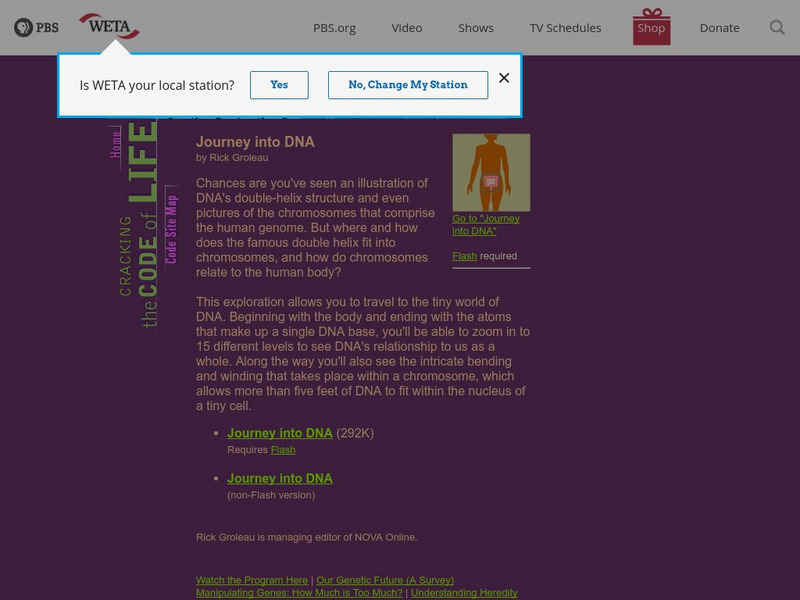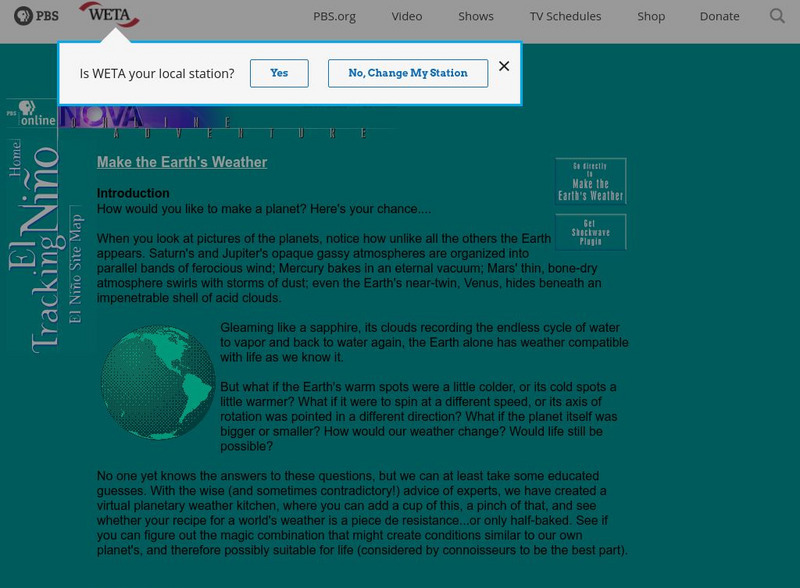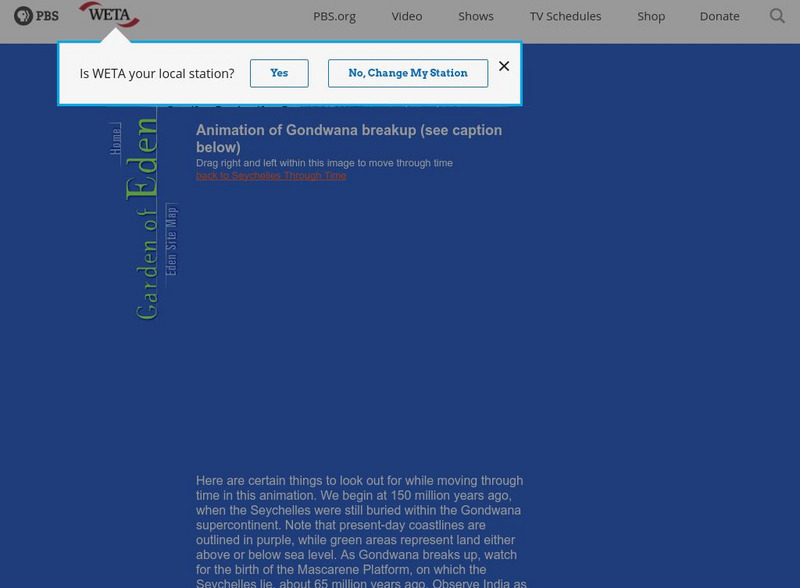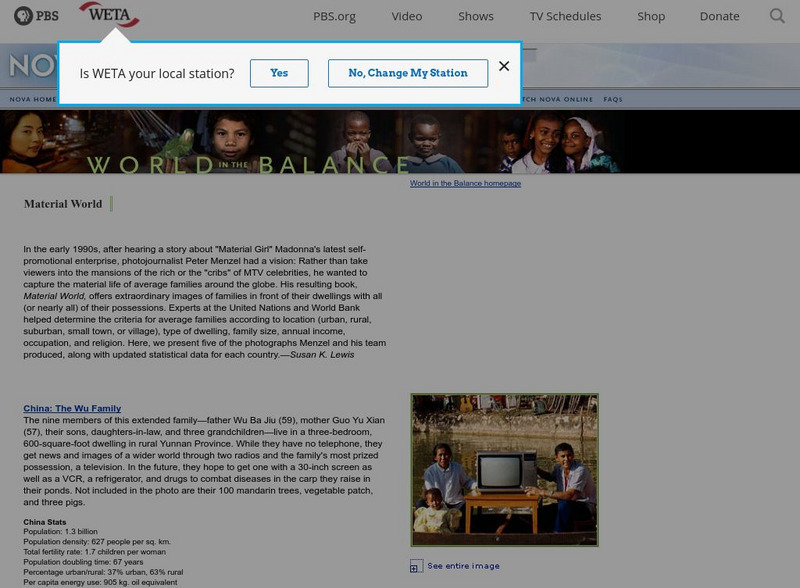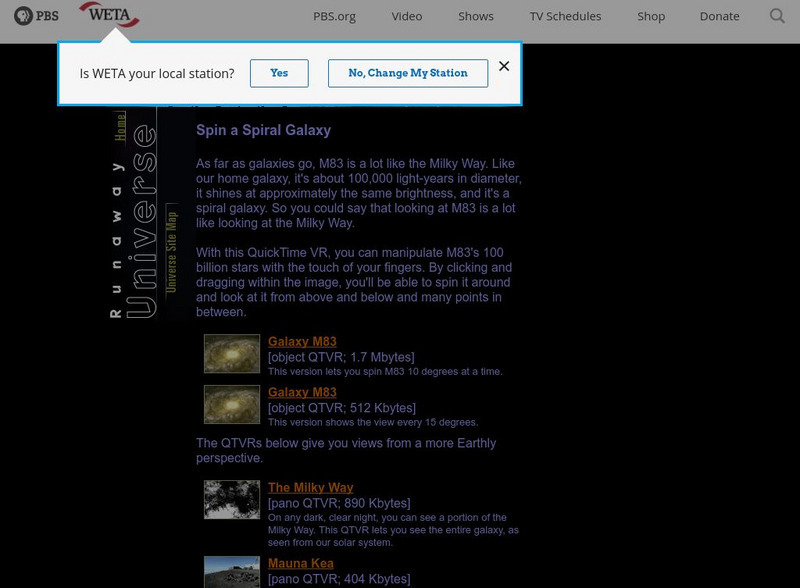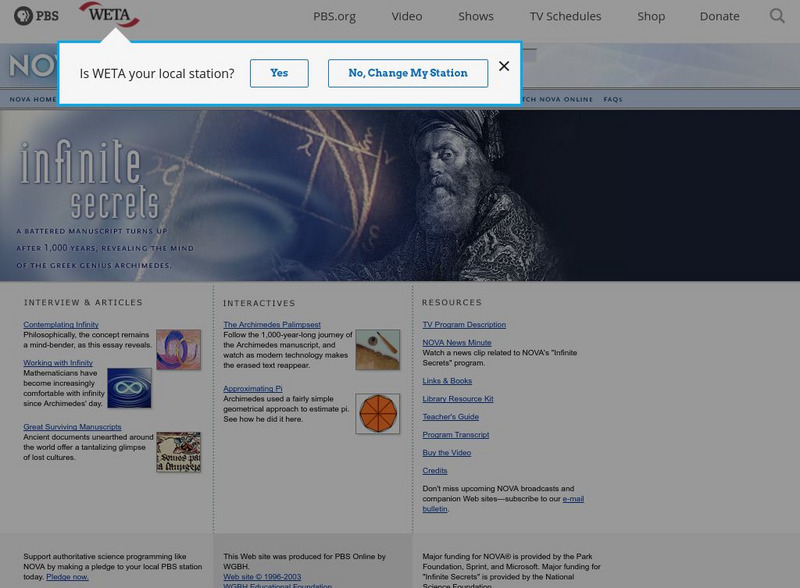PBS
Nova: Planning for Disaster
In September 1994, Rabaul volcano on the Papua New Guinean island of New Britain erupted. Very few people were killed due to a well designed evacuation plan. Get the details on the planning that saved thousands of lives.
PBS
Nova: Tour Kilimanjaro
Experience six different ecological zones as you climb Mt. Kilimanjaro. Pictures of plants living in each of the zones are also part of this virtual tour of the mountain.
PBS
Nova: The Atom Builder
A brief explanation is provided for designing a stable atom. You can also refer to a labeled model of a carbon atom. This resource also has a link to an atom building activity.
PBS
Nova: Track the Fossa
This short simulation shows you how to track a Fossa. Activities include tuning the radio (receiver) and positioning the antenna to get the strongest signal.
PBS
Nova: Identifying Remains With Dna
Mitochondrial DNA has different properties than nuclear DNA which make it beneficial in certain forensic settings. Get the details on the ways mitochondrial DNA is being used in forensic science.
PBS
Nova: Journey Into Dna
Investigate the structure and function of DNA using this animated presentation.
PBS
Nova: Jet Stream Frequently Asked Questions
This resource answers the six most frequently asked questions about the jet stream.
PBS
Nova: Make the Earth's Weather
The earth has some unusual properties that make its' weather suitable for life. This activity allows you to change four properties (earth's size, rotation speed, angle of the sun, and ocean size) to see what effects they would have on...
PBS
Nova: Gondwana Breakup
Watch the supercontinent Gondwana breakup into today's continents. The animation starts 150 million years ago and also shows the projected locations of the continents 50 million years into the future.
PBS
Nova: The World on Fire
During 200 the United States experienced one of the worst years for forest fires. The seasonal nature of this disaster is also typical of other countries. This interactive resource provides an overview of worldwide fires during 2000....
PBS
Nova: Blueprint for a Space Station
This resource provides information about the five major components of the international space station.
PBS
Nova: The Origins Game
This resource provides information about the origin of the universe, the earth and the organisms that live here. You will also be challenged to identify the geographic areas where origins research is taking place.
PBS
Nova: The Hunt
Learn more about the six senses that sharks use to hunt. Descriptions and pictures of each sensory organ are provided.
PBS
Nova: How Plants Use Fire
Fire is generally regarded as a negative phenomenon. Find out how plants and animals are adapted to survive fires and can even benefit from it.
PBS
Nova: If the Ice Melts
Global warming is becoming a big concern. See how it might affect the shorelines if parts of the Antarctic ice sheet melt. Diagrams of the east coast, Florida, northern Europe and southeast Asia are available.
PBS
Pbs: World in the Balance: Material World
Photographer Peter Menzel takes us into the lives of five very different families from around the world. The vision for his art is to capture the large discrepancy that exists between the rich and the poor.
PBS
Pbs: The Clickable Croc
This informative site examines the role of the key parts of the crocodile. It specifically looks at the structure and function of the teeth, feet, tail, nostrils, skin, stomach, eyes, ears, and throat.
PBS
Pbs Nova Online: Wresting With Crocs
A fascinating interview with Dr. Alison Leslie who describes the danger and excitement associated which capturing a crocodile. Many interesting questions are answered like how do you weigh a half-ton croc and how do you stomach pump a croc.
PBS
Pbs: Nova Online: Galaxies, Clusters, and Superclusters
PBS site explores these building blocks of the universe as well as their various types and clusters.
PBS
Pbs: Nova Online: Moving Targets
Colorful PBS site explores the Doppler Effect and the reading of absorption lines.
PBS
Pbs Nova Online: Spin a Spiral Galaxy
PBS site provides various views of spiral galaxies. (Quick Time required) With this technology, you can manipulate the image to spin it around and look at it from various angles.
PBS
Garden of Eden: Seychelles
This interactive site on Seychelles discusses species diversity and much more! Learn all about how an island forms, how supercontinents divide, and why this atoll boasts both giant and miniature forms of species.
PBS
Nova Online: Curse of t.rex
NOVA site provides cool science facts on dinosaurs as well as additional links and resources.
PBS
Pbs: Nova: Infinite Secrets
Offers a look into the mind of Archimedes based on findings within newly discovered manuscript.



